Conference on: What Do We Learn from the 2019 Social Movements in Iraq, Sudan, Algeria, and Lebanon?
FromDec 15, 2022 To Dec 15, 2022
Hybrid Event
Following the recent wave of social movements of 2019-2020 in several countries of the Middle East, the Economic Research Forum initiated a project to support the social movements to build a better understanding of their countries’ development challenges. The idea is that the social movements militating for a better future need support in shaping an attractive national political and socio-economic vision for the future that they will militate for. The project covers Algeria, Iraq, and Sudan, and links were established with Lebanese experts working in parallel on similar research.
Development progress will not come overnight. Yet, for change to come, a necessary condition (but far from sufficient) is for the leading national narratives to evolve. These narratives – social, economic, political, cultural – had been shaped post-independence by modernist nationalist ideologies, and reshaped later by more conservative view and by some forms of neo-liberalism. These visions of “utopia” have however become largely obsolete, as reaffirmed by the eruption of constatation in 2011 and 2019. Instead, these narratives are being replaced by a notion of a “progressive” Project – that encompasses the social, economic, and political aspirations of younger generation, women, and other groups militating for change.
So far, this narrative is bubbling up somewhat endogenously. For this change to become consolidated on firmer basis, new intellectual work is needed that explores destinations and paths towards a bright future, imagines different ways of organizing the polity, proposes ways to reform the economy, and analyzes the deep social transformations that need to go along these changes. The process of intellectual production requires diagnostics, analysis, discussion, idea promotion, and indeed political fights involving the knowledge production intellectuals and institutions. Moreover, political and social strategies need to be actively discussed among civil society organizations, the media, and the emerging political movements.
The main objective of the project was to invest in the intellectual effort needed to support the rise of the progressive narrative. This entails supporting new ways to comprehend the national ills in the economic, political, and social domains, the definition of a contours of a desirable new societal Project, and the clarification of the types reform needed to get there.
Since the inception of the project in 2020, thirty original research papers were produced on Iraq, Algeria, and Sudan by national teams, mobilizing about 50 researchers with a broad spectrum of background and expertize. Themes varied, depending on the specifics of each country. Papers were formulated and discussed with input from civil society stakeholders. Several multi-stakeholder consultation meetings, national workshops, and webinars took place where researchers interacted and exchanged views with members of civil society and social movements groups, and other experts in their countries and abroad.
The project started when the social movements in the four countries where dynamic and full of hope about progressive change in their countries social and political culture and organization. There was also hope of changes in the social contract and the way politics are exercised. During the life of the project however, Covid19 first, and then increased state repression, have put a break, for now at least, on the movements’ momentum. This has impacted the life of the project. In particular, the plan to propose “national action-plans” was put on hold, as it seemed at this moment a less pressing need than originally planned, compared to the urgent priorities dictated by the current political insecurity. While the subject of several papers, considerations about ambitious reforms, for example, in the health and education systems, or further decentralization, or more focus on environmental sustainability, seem less realistic goals now, and as a result, several papers have tended to focus more on a critique than on proposals. In Algeria and Iraq, the autocratic backlash is being helped by large oil revenue, which has given the rentier politics the ability to redeploy at full steam again. As a result, several papers re-open to issue of the political economy of natural resources, but fitted to the new circumstances.
The conference is taking place at a time where the social, political, and even security situations in Lebanon, Iraq, Algeria, and Sudan are at a very low point. At this stage, it is unclear if the 2019 revolutions have failed, or if we are experiencing a short-term lull, especially as the economic situation keeps deteriorating.
Nevertheless, there was a short period of hope and empowerment around 2019-2020 where everything seemed possible. Writing in a time of revolution and hope reveals the aspirations of long-repressed voices of the youth, women, and marginalized regions, which reflect new cultures and identities that have not been imposed top down, but that have naturally evolved and emerged. The freedom and sense of empowerment that characterized these short national celebrations have also inspired social thinkers to innovate, analyze, criticize, and propose new ways in full freedom. These texts will remain as a beacon of hope, at a time when their voice are now at risk of being muzzled, repressed, and depressed.
Conference Objectives
The conference will aim to do deliver on two ambitions in parallel:
- to highlight some of the intellectual production about the contours of visions for a better future, and how to get there, as imagined during the Hirak’s hopeful times; and
- to also promote a reflection on the legacy of the recent phase of the Hirak, and, especially, to draw lessons on how to bargain more effectively with governing regimes in the future on the shaping of a progressive social contract.
Agenda
Date
15/12/2022
Location
Beirut, Lebanon
Time
From 9:00 am To 9:30 am
Speakers
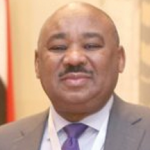
Research Fellows
Ibrahim Elbadawi
Development Studies & Research Forum, Dubai
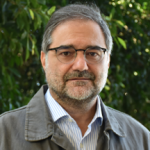
Speakers
Joseph Bahout
Director, Issam Fares Institute for Public Policy...
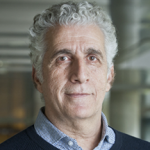
Research Fellows
Ishac Diwan
Director of Research, Finance for Development Lab,...
Agenda
What Happened?
Date
15/12/2022
Location
Beirut, Lebanon
Time
From 9:30 am To 11:00 am
What are the political economy underpinnings of the uprisings? Where these movements born out of grievances and/or hope and aspiration? How did they compare to the 2011 movements?
Speakers
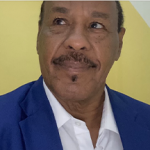
Speakers
Hassan Elhassan
Former Speaker of the Sudan Democratic Alliance
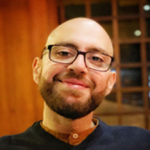
Speakers
Jeffrey G. Karam
Assistant Professor of Political Science, Lebanese American...
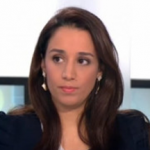
Speakers
Amel Boubekeur
Researcher, École des Hautes Etudes en Sciences...
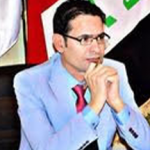
Speakers
Mazen Hatem
Ministry of Justice, Iraq
Agenda
The Revolutionary Moment
Date
15/12/2022
Location
Beirut, Lebanon
Time
From 11:15 am To 12:45 pm
During the height of the revolutions, there are moments of national celebration of creativity and hope for a better future. What where the main innovative ideas and proposals by the Hirak and in the project more specifically on how to organize society, the economy, the polity?
Speakers
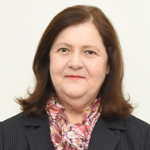
Speakers
Seteney Shami
Founding Director-General, the Arab Council for the...
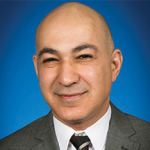
Research Fellows
Bassam Yousif
Professor of Economics, Indiana State University
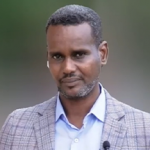
Speakers
Eltighani Khidir
TV Journalist, Producer and Presenter
Agenda
The Feminist’s Hirak
Date
15/12/2022
Location
Beirut, Lebanon
Time
From 2:00 pm To 3:00 pm
Women groups were not just active actors in demonstrations and social activism, but they used the opportunity to renegotiate the politics of gender relation with other movements active. How were the new slogans received, supported, opposed? How would these development be expected to affect the patriarchal culture and practice?
Speakers

Speakers
Joseph Bahout
Director, Issam Fares Institute for Public Policy...
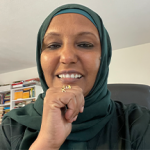
Speakers
Nada Mustafa Ali
Assistant Professor, School for Global Inclusion and...
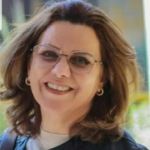
Speakers
Asmaa Jameel Rasheed
Researcher at the Center for Women's Studies,...
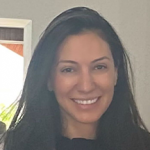
Speakers
Tania Haddad
Assistant Professor for Public Administration and Nonprofit...
Agenda
The Youth of the Thawra
Date
15/12/2022
Location
Beirut, Lebanon
Time
From 3:00 pm To 3:45 pm
Youth were on the front-line, not just concretely, but also figuratively, as their ideas and attitudes imbued the movement. The culture of resistance, as seen these days in the streets of Iran, has evolved endogenously, and not in reaction to a top-down ideology, as in the past. What are the components of this new culture?
Speakers

Research Fellows
Bassam Yousif
Professor of Economics, Indiana State University
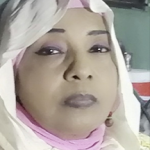
Speakers
Ragaa Babikir
Writer and Editor-in-Chief
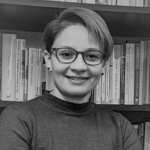
Speakers
Khadidja Boussaid
Researcher, Research Center in Applied Economics for...
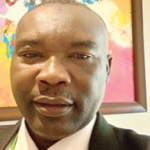
Speakers
Saif El Din Abd El Rahman
Resilience Advisor, UNDP Resilience Hub, Nairobi
Agenda
A Revolution for Nothing? How Do Things Change?
Date
15/12/2022
Location
Hybrid
Time
From 4:15 pm To 5:30 pm
The social movements of 2019 died out in part in reaction to the dangers of Covid19, and in part due to repression. The 2011 revolts were also extinguished by force. Yet, instead of progress, politics saw regress, and grievances have only grown. After a brief account of where we stand today, panelists will discuss the lessons that are emerging by now? How can good political change take place? Are progressive gains more likely than revolutionary ones? What is the inheritance left behind by the social movements of the past years?
Speakers

Research Fellows
Ishac Diwan
Director of Research, Finance for Development Lab,...

Research Fellows
Ibrahim Elbadawi
Development Studies & Research Forum, Dubai

Speakers
Amel Boubekeur
Researcher, École des Hautes Etudes en Sciences...

Speakers
Joseph Bahout
Director, Issam Fares Institute for Public Policy...
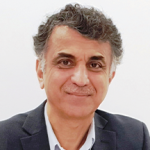
Authors
Faris K. Nadhmi
President, Iraqi Association for Political Psychology

